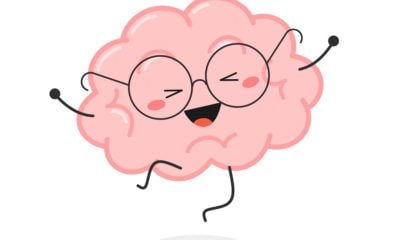How The Full Spectrum of Human Nature is in All of Us
I am a writer on Medium, and I recently submitted a piece to a publication.
The editor responded to me directly and said, “there is a darkness to my work that suits their publication.”
At first, it thrilled me that he liked my work, but then I reread his words.
Darkness?
I spent a week evaluating what that meant.
I’m not too fond of that word.
I think I am one of the most optimistic people I know.
So how did he see darkness?
I started contemplating my darker tendencies and thought I didn’t know myself as well as I thought.
I was terrified that I was some awful monster masquerading around as a kind person.
What does the full spectrum of human nature mean?
Human nature is a concept that believes there is a way that human beings behave naturally.
It includes the way we think, feels, and act and our fundamental traits. It is an attempt to discover what it means to be human.
Philosophers and sociologists like Aristotle, Nietzsche, and Darwin have all weighed in, but it’s hard to follow with so many thoughts.
However, according to psychologist Scott Barry Kaufman, Ph.D., there are ten personality traits that successful human beings seem to have in common.
While not necessarily “human nature,” these traits can lend a little help in trying to figure out who you are.
I wish I had done more research when the editor called my work dark instead of having an identity crisis.
I mean, sure, I write about my childhood, which included neglect, parental drug use, abandonment, and emotional and physical abuse, but I never thought I was a dark person.
Why do we think darkness is terrible?
The problem with human nature is that it usually asks, ‘is man good or evil.’
So some traits get classified as good ones, and others are traits we should avoid.
Darkness is one of those traits.
After all, the definition of dark is the absence of light.
Light has a connotation of being good, while evil things lurk and live the night.
I didn’t want to be dark but was my writing somehow offering a window into a part of myself I didn’t know existed?
Was I going to lose my mind someday and eventually become an awful person?
There is a psychology term referred to as the ‘Dark Triad.’
Delroy Paulhus and Kevin Williams initially studied it in 2002.
The dark triad of personality comprises narcissism, Machiavellianism, and psychopathy.
That sounds horrible, and for someone who thinks they are a kind person, it’s hard to reconcile that we might have these traits.
You will discover some exciting note points when you look a little closer and interpret each of these things.
Narcissism
Narcissism is categorized by grandiosity, pride, egotism, and lack of empathy.
I often think about what success as a writer looks like to me.
I visualize it, speak it out loud, and dream of the day people quote my words like Stephen Covey and Tony Robbins.
To some, that might seem grandiose, but is it?
Or is it just intention setting, positive thinking, and goal setting?
I use positive affirmations and am proud of overcoming my trauma and making something of my life.
I think everyone should be after facing adversity and coming out stronger.
When I write, I believe I don’t show as much empathy for mom and grandma as I should.
I am writing about things that bring up so many emotions there isn’t always room in my brain, or the story, for one more.
Machiavellianism
Manipulative behavior, an absence of morality, unemotional callousness, and a high level of self-interest are characteristics of a Machiavellian personality.
I have done some manipulative things that don’t make me feel proud.
I believe that morality should not be legislated.
I always feel like I write my stories full of emotion, but I have to distance myself from the sea of emotions on the inside.
I would never have thought I was remotely Machiavellian, but is it possible when I look a little deeper?
Psychopathy
This one sounds terrifying when you look at it.
Not too many people want to delve deep into their psyche and ask if they could be psychopathic tendencies.
Surely not, right?
True psychopaths are continuously anti-social.
Lately, I have discovered that I like to be alone more than I ever thought.
There are no other noises, no one else’s opinions to contend with, and just books to read.
Quarantine taught me that I am genuinely an introvert.
Impulsivity is another trait, and I can be rational and thoughtful momentarily.
Yet, I also find impulsivity freeing, and I have been doing it more lately.
Regarding selfishness, I’m a mom, a wife, and a big sister.
I didn’t have much experience with selfishness, but a year of therapy has stressed how important it is to be selfish sometimes.
If the therapist tells me I should be more selfish, why does it get such a bad rep?
There is a little darkness in all of us, and that is more than okay.
Human beings are not angelic or celestial beings.
Not every motive can be altruistic.
You will need some of these dark triad traits to survive trauma.
They will be necessary to help you find success.
Some of them are even required to recharge yourself and stay healthy.
It doesn’t make you evil or dark.
It doesn’t mean you are devoid of light and other noble qualities like the ones defined by Dr. Kaufman, who took his work a step further to define and study the “Light Triad.”
If the “Dark Triad” looks at the sinners and the worst of us, then the ‘Light Triad” is as close to sainthood as humanity can come.
According to Dr. Kaufman, the “Light Triad” comprises three facets:
- Kantianism (treating people as ends unto themselves)
- Humanism (valuing the dignity and worth of each individual)
- Faith in Humanity (believing in the fundamental goodness of humans)
Kantianism
Kantianism, pretty much the opposite of Machiavellianism, is a simple idea that you do not use people.
The theory revolves around the concept of “categorical imperative” set forth by Immanuel Kant. The theory states that:
- Act only according to that maxim when you can, at the same time, it will become a universal law.
- Act in such a way that you treat humanity, whether in your person or the person of any other, never merely as a means to an end, but always at the same time as an end.
- Therefore, every rational being must act as if he were, through his maxim, ever a legislating member in the universal kingdom of ends.
The theory attests that saving someone for any other reason than that rationality is not a genuinely moral act.
Anyone who helps someone else is doing a good thing; most humans are not this saintly; we usually have another emotion, even if it is guilt or pity.
I mean, we are only human.
Humanism
This school of thought attaches superior value to humans rather than the divine or supernatural.
Humanist beliefs stress the potential importance and goodness of human beings.
The core emphasis is the everyday human needs and rational ways of solving social problems.
The theory is focused on science.
This sounds great, but what about the needs of individuals?
Not all humans are the same.
There are also situations where science doesn’t explain things thoroughly enough, and people turn to faith.
Faith in Humanity
Last, there is the notion of faith in humanity.
I like this one a lot, as it is characterized by the belief that there is goodness in people.
I think it is valid for so many of us.
We may not always make selfless decisions.
We might get short and angry and even act selfishly.
However, when push comes to shove, I need to think people will choose the best choice.
Understanding the full range of human emotions is much harder than looking at the extremes of the “Dark and Light Triad.”
Humans aren’t just psychopaths and saints, which I realized when I looked at my dark side.
We go through a lot of pain and sadness, trauma, and heartbreak in this life.
It can leave behind a little residual darkness, but there is light too.
The dark traits are often the very ones that bring us about finding the light.
I endeavor not to be afraid of the darkness but to acknowledge it and let it remind me that I appreciate the light.
I am not evil or saintly; I am only human, as are you.
And I am at peace with that.











